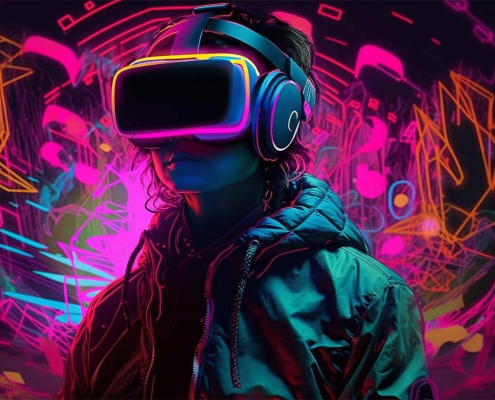Technology
ChatGPT, GANs, PyTorch
Sector
Development Service
In the realm of modern game development, harnessing the power of artificial intelligence (AI) to generate game levels, stories, and scenarios has revolutionized the gaming experience.
1. Efficiency: Automating the creation of game levels, stories, and scenarios to enhance productivity and save development time.
2. Variety and Creativity: Generating diverse and creative game content to keep players engaged and provide unique gaming experiences.
3. Adaptability: Tailoring game elements to suit different player skill levels and preferences, ensuring a satisfying gameplay experience for all.
The concept involves integrating AI algorithms to autonomously design game levels, craft intricate stories, and devise challenging scenarios based on predefined parameters and player interactions.
1. Machine Learning Models Utilize machine learning models such as transformer networks, generative adversarial networks (GANs), or reinforcement learning for training. Train the models on the preprocessed data to learn patterns and generate new content.
2. Game Content Generation Implement AI-generated level design algorithms to create varied and challenging game levels based on the models’ learned patterns and preferences. Develop AI-driven storytelling modules that craft immersive narratives, adapting the plot based on player choices and in-game events. Incorporate AI-powered scenario generation to dynamically adjust difficulty levels and scenarios based on player progression and feedback.
3. Player Interaction and Feedback Loop Enable the game to collect player data and interactions during gameplay. Utilize this data to continually improve the AI algorithms, ensuring a personalized and evolving gaming experience for players.
4. Integration and Testing Integrate the AI-generated game content seamlessly into the game engine. Conduct rigorous testing to ensure the generated levels, stories, and scenarios align with the game’s objectives and provide an enjoyable experience for players.
Integrating AI to create game levels, stories, and scenarios presents a promising avenue for the gaming industry, allowing for more efficient development processes, enhanced creativity, and adaptive gameplay experiences. By leveraging machine learning models and utilizing a data-driven approach, game developers can elevate their games, providing players with exciting, diverse, and personalized gaming adventures. Continuous refinement and enhancement of AI algorithms based on player interactions will contribute to a more engaging and immersive gaming landscape in the future.
















